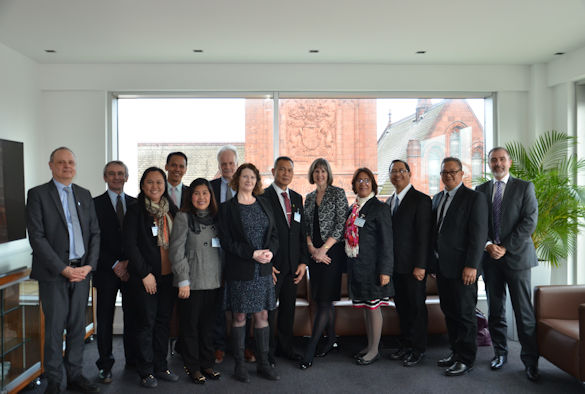CESFS begins long-term partnership with three Philippine universities

Postgraduate students from a long term partnership between the Centre of Excellence for Sustainable Food Systems (CESFS) and three Philippine Universities will start their research in January 2019.
This new collaborative transnational education (TNE) programme, supported by the British Council and the Philippine Commission on Higher Education (CHED), forms part of the Philippine government’s ambition to advance the country’s higher education system and the training of its future workforce.
The first cohort of students is from Central Luzon State University (CLSU), each of whom will be undertaking a dual PhD. CESFS staff are looking to establish a supervisory team for each of the six students from across the University of Liverpool and CLSU – for more information please contact the CESFS team on: food@liverpool.ac.uk
This initial cohort of students will cover a broad range of topics including:
- Sustainability of agrifishery communities through community-based climate change adaptation strategies
- Nutritional requirements for improved poultry production
- Native pig breeding and nutrition
- Genomics, pest management and rice
- Aquaculture and fish waste
- Livestock husbandry
The University will also welcome students from Bicol University onto a two-year dual award Masters degree in Sustainable Food Systems initially in the Philippines and then in Liverpool from September 2019. There are ongoing talks with University of the Philippines, Los Baños, the lead institution for this TNE programme, to explore further partnership opportunities in a wider range of subject areas.
The University is one of only ten UK universities chosen to develop joint, dual award degrees in niche disciplines that are currently not available in the Philippines.
Professor Martin Mortimer, from the University’s Institute of Integrative Biology (IIB) who is one of the academic leads for the collaboration, said:
“It is very exciting to see this collaboration come to fruition and we very much look forward to welcoming research students from the Philippines to Liverpool”.